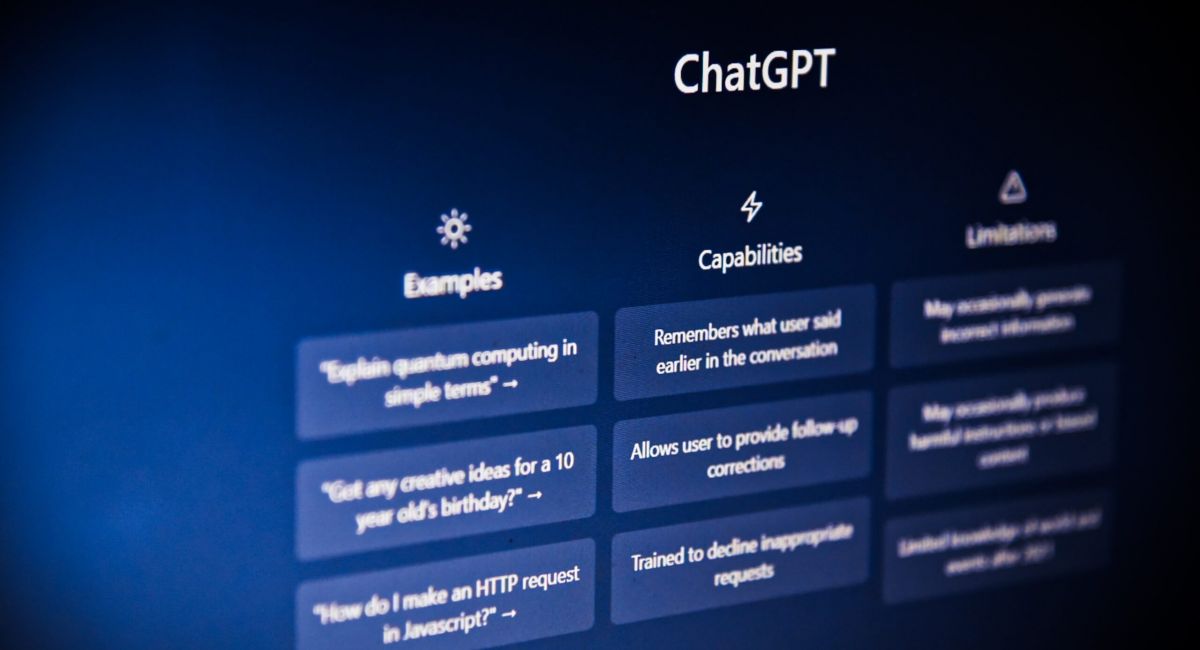
Generative AI for Churches: Welcome to the ChatGPT Revolution
Table of Contents:
- What is ChatGPT?
- What is Generative AI?
- Is ChatGPT Intelligent?
- Why is this so disruptive?
- How can AI help my church?
- Final Thoughts
Welcome to the age of generative AI! We have turned a corner that I believe will be as monumental as the dawn of the internet. The emergence of ChatGPT and the public accolades and scrutiny that have accompanied it, have demonstrated what a significant time in history we are in now. The lid has been blown off the pandora’s box of AI, so to speak, regarding the powers and capabilities of AI and deep learning. How does this impact your church and/or how can your church take advantage of this new tool? This article will explain the profound implications of this new technology and share a few ways churches should and should not use it. Let’s begin!
What is ChatGPT?
ChatGPT is a software experiment created by the organization Open AI. It was created to explore the capabilities of what deep machine learning could generate when functioning like a chatbot. What is a chatbot you may ask? A chatbot is a computer program that mimics the chat functionalities of humans when interacting with other humans in a chat box interface. Chatbots have been around for many years and you have more than likely interacted with them knowingly or unknowingly in seeking support from a company. These were created to ease the burden of support agents by using software to suggest answers to simple problems. Chatbots were also used by marketers to have human-like interactions in an attempt to sell things to people on social media networks. ChatGPT is basically a chatbot that has much stronger deep machine learning capabilities that has been “trained” by selected content on the internet. What is “training” you ask? This is the content that is fed into the software that enables ChatGPT to “predict” and create a response that seems human-like. It’s the data that the chatbot bases its responses on. This technology has been in development for several years,you’ve probably interacted with it before and didn’t know it. Google assistant, Alexa, text autocomplete, Gmail smart reply, and many others are examples of how we were already using this technology. Others, like Jasper, have previously shown off this technology’s capabilities for generating copy. ChatGPT expands on these in its ability to understand even more detailed requests and apply that in new ways like coding, writing song lyrics, poems, email copy, answering questions, summarizing transcriptions, and more. Don’t worry, we’ll dive a little deeper into the application of this further down in the article.
What is Generative AI?
Other forms of generative AI include the ability on other platforms like DALL E-2, another one of Open AI’s platforms, Jasper Art, Midjourney , Adobe Firefly (coming soon) and others to create “original” graphics, images, photos, vectors and more. This is done by training them with huge swaths of images across the internet. This has brought up some legal issues regarding copyright laws that will be determined in court at some point in the future. These image/graphic generators are used in a similar way to ChatGPT, in that these images can be created using simple text “prompts”. Just to define, the prompts are the strings of text that are fed into the software platform to generate the corresponding outputs. It’s about learning how to ask the questions and provide the right details or clarifications in the right way to get the results you are looking for. Though there are generative AI tools coming that will not require these text prompts, as of now this is how you primarily interact with these platforms.
Is ChatGPT intelligent?
It’s important to note a few things about this technology that differentiate it from what most consider true Artificial Intelligence. Chat GPT is not sentient, or self aware, even though it may act as such. Nor does it have feelings or emotions, though it can create copy that mimics human emotions. It is also important to mention that it is not 100% accurate. It is only as accurate as the information it was trained on and we all know how accurate the information on the internet can be at times. Though ChapGPT has gone through several updates since its unveiling, each demonstrating even more capabilities and understanding, it is not true “AI”. This software is the result of the information that has been fed into it. Recently ChatGPT has been hooked directly to the world wide web, so it can learn more about up-to-date news and information. There is no doubt that this new technology and its applications will have a profound impact on our society and our ability to create good content, get answers to complex questions, and more.
Why is this so disruptive?
Much like how the invention of the microprocessor allowed for more complex calculations to take a fraction of the time; chat GPT and other Generative AI tools will allow many non-technical people to be able to do things that may have previously taken professionals many hours. This is a revolution of efficiency, much like that of the calculator, and how it made doing math so much faster and easier. The result of this increased efficiency is still yet to be determined. We at One Eighty Digital are excited about the new tools that will come out that will allow us and our customers to be able to create new content, images, code, and more faster and easier.
You’ve heard that this technology is so “disruptive” because it fundamentally alters existing consumer, business, or industry behavior. Specifically this disruption is about how we access information. Up to this point, we usually entered a question or search query into a search box to begin our search for the answer we were looking for, typically Google. This would generate a list of websites ranked by Google by relevance for us to peruse to find what we were looking for. This search for answers took time. Though not as long as it took for me to go to the library to search for answers when I had to write papers in school pre-Google, but that’s not the point. Also, I will point out that Google has been answering simple questions at the top of their search engine results page for two decades to help you save time. ChatGPT and others will remove that time barrier to information in the search results business. This is disruptive for the big players in search, mostly Google, which is why they are working on a competitive product and why Microsoft, owner of Bing, moved so quickly to secure the technology for their own search engine. Search engines aren’t going anywhere but they will be more streamlined and hopefully get you the answers you are looking for faster.
How can AI help my church?
Let me start with 3 examples…
Example 1: Let’s say you need to write an engaging description of your upcoming children’s event for a flier you are creating. You could use ChapGPT to write it for you and it would most likely be better than the one you would write yourself, unless you’re a trained copywriter. You could also use other tools to generate beautiful design for the flier. You could use your own images on the flier or ask DALL-E 2 to create a stock photo of kids playing to use on the flier. You would then edit the content and tweak the layout, colors, and images to make sure they represent your church’s look and feel. All this could be done in about 5-10 minutes with the help of AI. Done in the traditional way, it may have taken 2 hrs or more of your or someone on your team’s time. See the difference?
Example 2: Let’s say you need to write an email to all your church’s attendees to talk about a new fundraising initiative you are starting. You want this email to be engaging and share the vision behind the fundraising goal. You could simply ask ChatGPT to write a fundraising email that talks about the importance of children’s ministry in the church and offers people a chance to be a part of this new initiative. While you should NOT send out exactly what ChatGPT creates for you, it would get you a big headstart by creating a good initial email framework for you to then be able to tweak to your audience and add your links to. Unless you had training on writing persuasive emails, this could be a better and faster way you writing the email and agonizing over where to start or if it’s clear.
Example 3: It’s last minute and someone has just asked you to lead a bible study on something you didn’t have the time to prepare for. Your options are 1. You could say NO and just let them know you didn’t have time to prepare. 2. You could try to pull out an old sermon you had in your pocket and try to make it apply to the topic or 3. You could ask ChatGPT to give you summary points about a particular passage. Please note that I am 100% NOT suggesting that you use ChatGPT to prepare a sermon or lesson and it should never replace personal study and preparation. But it can give you a head start to talk about something you weren’t prepared for and that you could customize with additional commentary, illustrations, and applications. Unless you were born with the “gift of gab”, I know some are, this would be a good alternative for those of use who typically need a longer runway to prepare to teach.
Generative AI is about augmenting and elevating your ability to make things better and do things faster. Some other examples of ways you could use these tools are…
- Creating social media posts
- Writing blog articles
- Creating website content (ex. like welcome paragraphs and ministry descriptions)
- Helping with translation (yes, it can do that! Even greek and hebrew)
- Helping craft announcement wording
- Generate event/game/or even outreach ideas
- Finding a Bible verses about a general topic
- Provide links to relevant articles about a topic
- Creating lesson and sermon series outlines
- Finding topical illustrations for sermons
- Rewriting content for specific audiences (ex. Changing an adult sermon to teach kids)
- Creating graphics and photos for promotional use
- Crafting better email subject lines
- Creating short summaries of long form content
Some ways churches should NOT use Generative AI…
- Creating ready to use sermons
- Crafting personal prayers
- Writing “original” worship songs
- Writing articles about complex theological issues
- Being the single source of truth (only God is)
Final thoughts and how Generative AI will change the future
There will be a lot of blurred lines in the next few years as this technology is used and debated. Was this written by a bot or a human? Who really “owns” AI generated content? Do I need to credit AI when I use it? How will this new way of looking for information impact my website traffic? Will I be impersonated online? Could people create fake images that discredit my ministry? All of these are valid questions and possible implications of Generative AI and ChatGPT. Ultimately the results will depend on the hand that wields the tool. BTW, Open AI has even developed another tool to help detect AI written content.(check it out) But we at One Eighty Digital don’t think that these new tools will replace humans, but rather they will help all of us do things better and faster like new tools have been doing for thousands of years. Much like steam shovels, cars, and the internet changed the world we live in for the better, they also had negative implications that we learned to manage. These new tools will do the same. We believe there are some very powerful ways this technology will impact other industries, like healthcare or managing information databases for example, that will be equally as revolutionary. Even though they seem very human-like, we believe that they will only further clarify what it means to be human as we seek more ways to reflect our creator, and hopefully make some difficult tasks more pleasant and interactive along the way.
Adapted from a post on the One Eighty Digital blog. See the original article here.



